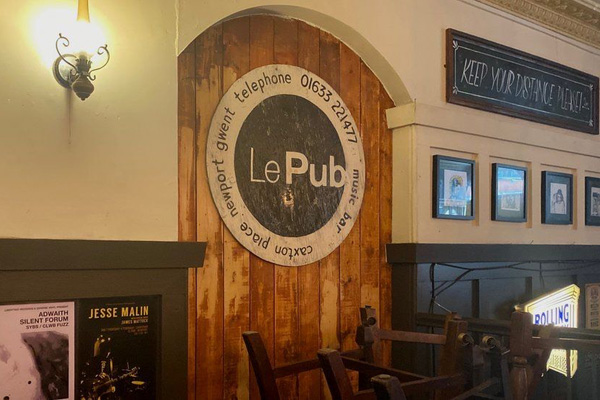For more on radio and music business news. | Click on RNMBiz

MUMBAI: Safety kit and reduced capacities due to social distancing would cost more than £10m a year, a report has said.
Sam Dabb, of the Music Venue Trust in Wales, said her venue would not be financially viable with capacity cut from 200 to just 17 due to coronavirus.
The Independent music industry was devastated by the COVID-19 pandemic. The bars and clubs that host indie musicians had to close down. Not only they could not host the shows anymore but had to put all their services on hold. In Wales, the indie music industry might not survive without help from the government. Even while other hospitality venues have opened, by their very nature, live entertainment providers will struggle to operate until the pandemic is under control.
As long as the social distancing rules are obligatory, financial support, which is necessary for the indie music industry to survive, would cost over £10 million a year. Music Venue Trust is a trust representing 66 grassroots organizations within Wales. Sam Dabb is the coordinator of the trust and manages Le Pub in Newport – and her venue is currently only able to accommodate 17 guests instead of the 200 prior to the COVID-19 pandemic.
The Welsh government announced a £53 million grant to help the arts and also helped 22 grassroots businesses with over £400,000 in May but the help was temporary. Before the COVID-19 pandemic, Le Pub would host an event five nights a week. Sam Dabb explains that Le Pub can accommodate 200 guests but considering the flow of the guests there would be around 500 visitors on a Saturday night. With no future prospects, and the possibility of even tighter restrictions, as cases of the virus are on the rise again, the workers of Le Pub now try to find things to sell to somehow survive. With the 2-meter social distancing rule, the pub and music venue could only accommodate 17 guests, a number so small that it makes no sense for venues like Le Pub to open.
EU’s economy (including Wales) could be saved by digital economy
The COVID-19 pandemic hit not only the indie music industry, but every sphere of our lives was affected. Many industries have struggled and experts think some businesses might not be able to reopen. The hospitality, arts, and tourism sectors, along with aviation and some others are the ones that suffered the most. The only branch of the economy that has more profits now than before the pandemic is the digital economy. Many businesses that adopted digital technologies managed to keep working and keep their employees. Tech giants such as Amazon, Netflix, and Facebook are thriving.
Another good example of a digital industry that saw a growth in their revenues is e-commerce and iGaming. The number of visitors to the digital gaming platforms grew during the lockdown. Along with traditional gaming forms such as slots, poker, roulette and blackjack, gamers prefer playing casino live games online with raw emotions, like they get in a casino building. iGaming providers adapted many popular games, including the games based on the movie and comic book characters. Many online casinos also accept cryptocurrencies. Giving the users an option besides the traditional money made iGaming more popular. The users do not have to spend much time on the transactions of the traditional money because the transactions with digital currencies take a few seconds to appear on the account balance. With so many offers and options iGaming is becoming increasingly popular and a good example of a digital economy that thrives. In times of crisis such as the pandemic, the value of the digital economy became apparent.
Wales in recession for first time in 11 years
After eleven years of economic growth Wales is in a recession because of the COVID-19 pandemic. The economy of the United Kingdom declined by 20.4% in just two months from April till June. In June the businesses started reopening and some data suggests that the economy started recovering. The household spending dropped because the shops were closed and the construction work stopped. Wales’ had 2.7% less unemployment than the year before. However, the data did not consider millions of people who are officially employed but do not get any shifts.
Experts say that Wales needs help to tackle the consequences of the lockdown. Certainly, if we are to keep Wales’ heritage of live entertainment, that help cannot come quickly enough.